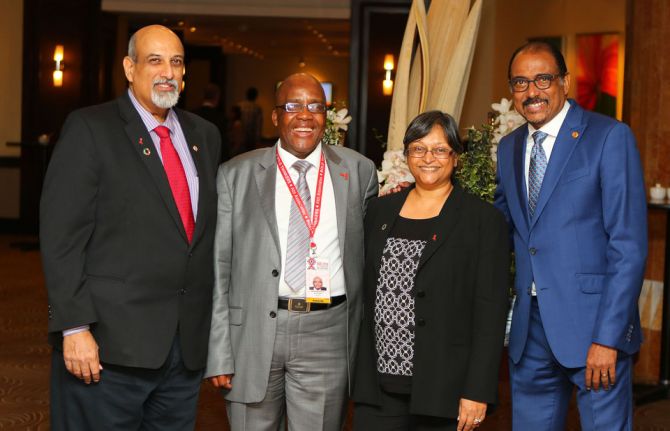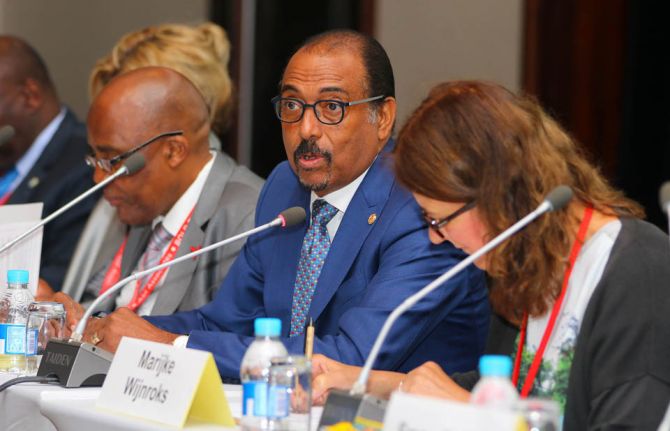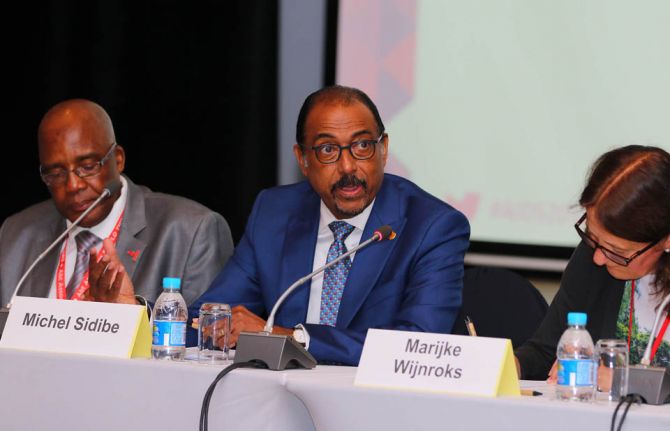



Update
Putting a quarter for HIV prevention firmly on the global agenda
18 July 2016
18 July 2016 18 July 2016The newly launched a quarter for HIV prevention campaign, which calls for investment in effective prevention programmes to be increased to at least 25% of global HIV resources, is gathering momentum.
In order to help harness this momentum, UNAIDS and the World Bank co-organized an event at the 21st International AIDS Conference, being held in Durban, South Africa, with a high-level panel, including UNAIDS Executive Director Michel Sidibé, Deborah Birx, United States Global AIDS Coordinator and Special Representative for Global Health Diplomacy, ministers of health of South Africa, Swaziland and Zimbabwe, leaders of national AIDS programmes and representatives of the Global Fund to Fight AIDS, Tuberculosis and Malaria and civil society. The event, which took place on 17 July, was moderated by David Wilson, the World Bank’s Global AIDS Programme Director.
Focusing on the challenges and opportunities to scale up HIV prevention programmes, the participants shared ideas and experiences, examining ways to ensure both the availability of sufficient investment and that key populations, women and young people are not left behind.
The meeting also highlighted the need to address behavioural and structural, in addition to biomedical, factors.
It was argued that only a redoubling of prevention efforts could address the worrying trend of new HIV infections among adults having failed to decline for at least five years, a trend highlighted in the new UNAIDS Prevention gap report. Although great strides have been made in treatment and reductions in mortality, participants agreed that treatment alone cannot bring about the end of the AIDS epidemic.
In helping to chart a concrete way forward, the panellists suggested a series of next steps towards scaling up prevention plans and programmes and making sure that a quarter for HIV prevention becomes a reality.
Quotes
“The 90–90–90 targets should be combined with comprehensive prevention and we have key prevention pillars covering combination prevention for young women and adolescent girls, programmes for key populations, access to condoms for all, voluntarily medical male circumcision and pre-exposure prophylaxis.”
“It is obvious that our success has so far relied on biomedical interventions. The biggest challenge the world has to deal with now is social and behavioural prevention interventions. This is our new focus.”
‘The real issue we have before us is demographics and epidemiology. Better data will help us focus on the right populations in the right locations. We need a similar commitment for and rigour with data on prevention as on treatment.”
“We need to be able to get to the populations at risk and empower them with the ability to demand access to prevention services.”



